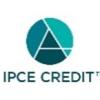
2023 Together - NA369 - Intentional Neighboring: Improving Healthcare Outcomes and Social Awareness- On Demand
Today's societal problems are numerous — including the cost of healthcare, mental health challenges, the impact of financial distress, racial biases, income gaps, gun violence and a lack of compassionate care toward the end of life. Intentional communities are one way that such societal ills can be addressed. When faced with such a myriad of challenges in behavioral healthcare and counseling settings, our team of mental health providers, social workers and others often considers ways to address the long-term needs of our clients and patients. Often the issue of housing comes up because it is the most expensive aspect of one’s budget and when there is conflict in a family, residential issues become important to address. Intentional communities help us consider healthcare outcomes for vulnerable persons. For most conditions and diseases, a person’s long-term health habits have the greatest influence on delaying and preventing physiological decline. As a joint venture (a nonprofit merging missions with for-profit entities), these communities help enhance positive healthcare outcomes by providing many of the elements that lead to improved long-term health.
Target Audience
- Healthcare Quality Professionals
- Nurses
- Pharmacists
- Pharmacy Technicians
- Physicians
- Other Healthcare Professionals
Learning Objectives
- Describe how to address aging in place, reducing isolation, and increasing awareness between health, environmental and personal factors.
- Identify options for affordable housing and community support.
- Explain how five design patterns are integral to addressing growing mental health issues.
Faculty
Debra Ann King, PhD, Chief Executive Officer, Family C.A.R.E. Services, Greenville, SC
Channing Moss, MA, Resident in Counseling, Intern/Clinician, Family C.A.R.E. Services, Greenville, SC
Disclosure

Credit Types

Interprofessional Continuing Education (IPCE)
This activity was planned by, and for, the healthcare team, and learners will receive 0.75 Interprofessional Continuing Education (IPCE) credits for learning and change.
Nurses (CNE)
Vizient, Inc. designates this enduring material for a maximum of 0.75 ANCC contacts hours.
Pharmacists (CPE)
Vizient, Inc. designates this enduring material for a maximum of 0.75 contact hours for Pharmacists.
Universal Activity Number: JA0006103-0000-23-321-H04-P
Pharmacy Technicians (CPE)
Vizient, Inc. designates this enduring material for a maximum of 0.75 contact hours for pharmacy technicians.
Universal Activity Number: JA0006103-0000-23-321-H04-T
Physicians (CME)
Vizient, Inc. designates this enduring material for a maximum of 0.75 AMA PRA Category 1 Credit(s)™. Physicians should claim only the credit commensurate with the extent of their participation in the activity.
Healthcare Quality Professionals (CPHQ)
This activity is approved by NAHQ® for 0.75 CPHQ CE credits.
Other Healthcare Professionals (General CE Credit)
Vizient, Inc. will award a maximum of 0.75 contact hours to all other healthcare professionals who successfully complete the activity. These individuals will receive a Certificate of Participation indicating the maximum credits available.
Many state licensing boards and credentialing bodies accept certificates of participation from accredited CE activities to meet CE requirements for license renewals and re-certification. It is the responsibility of the participant to contact their state licensing board and/or certifying body for verification on credit eligibility reciprocity.
Available Credit
- 0.75 ACPE Pharmacist
- 0.75 ACPE Pharmacy Technician
- 0.75 AMA PRA Category 1 Credit™
- 0.75 ANCC
- 0.75 CPHQ – Certified Professional Healthcare Quality
- 0.75 General CE - Attendance
- 0.75 Interprofessional Continuing Education (IPCE)

 Facebook
Facebook X
X LinkedIn
LinkedIn Forward
Forward